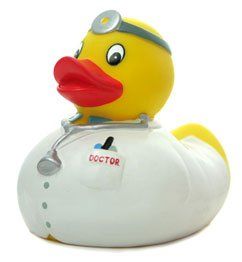It’s been a long bleak winter, but finally the first signs of spring are arriving: sneezing, coughing, runny nose and watery eyes! Yes, these symptoms are similar to the ones I get whenever I hear that “The Bartered Bride Overture” is scheduled for our next Philharmonic concert. But I digress. Whatever the repertoire, it’s no fun playing a double reed instrument with springtime allergies.
Hay fever can make you miserable. When it’s difficult to breathe, your nose is congested, and your ears are stuffed up; the last thing you feel like doing is blowing a high intensity air stream against a reed. Who wants to put on fancy clothes and play a concert when your best spring accessory is Kleenex?
To make matters more vexing, sometimes when you attempt to relieve your allergy symptoms, the cure creates other problems. Allergy medications can make you tired (for some people, even the “non-drowsy” formula makes them nod off). Or some have the opposite effect and make you feel hyperactive (all of a sudden all the tempos seem sooo slow…!). Yet another problem for wind players is when the medication works too well. The antihistamine that relieves your nasal congestion and relieves that itchy feeling in your throat often causes dry mouth, making it especially difficult to make sounds on a reed that requires moisture to vibrate.
Of course, if you have friends who are singers, you mustn’t complain about any of this. We use our nose, our tongue and our throat to assist us in making beautiful sounds on our instrument. But for singers, the nose, tongue and throat ARE their instrument. So no matter how bad off you think you have it, your singer friends will insist they have it worse. And they are probably right.
So what do I recommend you do so that you can survive this otherwise most beautiful season of the year? Well, for each person there’s a unique remedy. It’s important not to give up hope, because there are many treatment options. If you consistently get springtime allergies, find out what triggers your symptoms. A medical specialist can help you pinpoint specifically what pollen or pollens you are allergic to. For me it’s the mulberry tree. I didn’t have allergies in other parts of the world I’ve lived in, but here in Nevada this non-native tree has been planted profusely and for just a few weeks while it is in bloom, it puts me in misery. But there are now websites and apps that will tell you when grasses and trees are pollinating and they will give you the day’s pollen count. Avoid exposure if you can when pollen counts are high. If you have to go outside, be sure to take your shoes off before re-entering your home, wash your hair before going to bed, and wash your clothes regularly.
Most of all, you should work with a doctor to figure out what medications will relieve your symptoms and allow you to still perform at a high level as a musician. There are homeopathic remedies that many people swear by, which are worth exploring. For me though, it took some experimenting and eventually I found a combination of a nasal spray, eye drops, and a small white pill that helped me breathe normally and cured my red, painfully itchy eyes, but at the same time didn’t make me want to fall asleep and didn’t dry out my throat.
Speaking of eye drops, there are good over-the-counter drops but if you have more severe problems, then the prescription drops feel like a gift from the gods. They can be very expensive however. So be sure to ask questions of your pharmacist, doctor, or insurance company. I mentioned to my doctor that I was surprised how expensive they were, and he found a coupon that allowed me to get the same medication for a significantly lower rate.
As the song says, “spring can really hang you up the most.” But it doesn’t have to!
What helps YOU get through allergy season?
